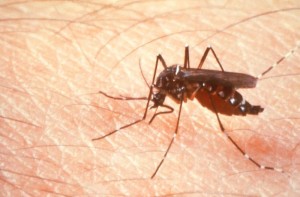Canada updates travel notice for the Caribbean, first chikungunya cases reported
The Public Health Agency of Canada updated their travel notice for Chikungunya in the Caribbean and the Americas Aug. 5 as the number of locally acquired cases of the mosquito borne virus in the Western Hemisphere topped 500,000.
Aedes aegypti image/CDC
Since December 2013, confirmed cases of chikungunya have been reported on many islands in the Caribbean. These cases mark the first time that locally acquired transmission of chikungunya has been detected in the region of the Americas. Local transmission of the virus has also spread to countries in Central and South America and Florida in the United States.
As of August 8, the Pan American Health Organization (PAHO) reported eight imported chikungunya cases in Canada.
Yesterday, the UN agency reported about 586,000 autochthonous in the Americas and the Caribbean. In North America, 589 imported cases have been recorded–the United States (580), Canada (8) and Mexico (1). In addition, there has been four locally acquired cases reported in the state of Florida.
The Public Health Agency of Canada recommends that travelers protect themselves from mosquito bites when travelling to affected destinations.
Chikungunya is a viral disease transmitted by the bite of infected mosquitoes such as Aedes aegypti and Aedes albopictus. It can cause high fever, join and muscle pain, and headache. Chikungunya does not often result in death, but the joint pain may last for months or years and may become a cause of chronic pain and disability. There is no specific treatment for chikungunya infection, nor any vaccine to prevent it. Pending the development of a new vaccine, the only effective means of prevention is to protect individuals against mosquito bites. For more infectious disease news and information, visit and “like” the Infectious Disease News Facebook page

Leave a Reply